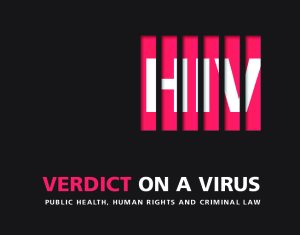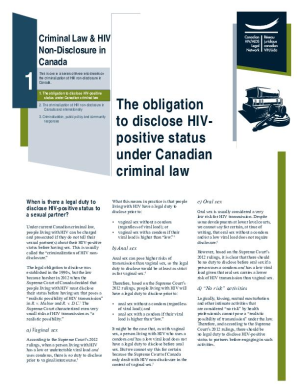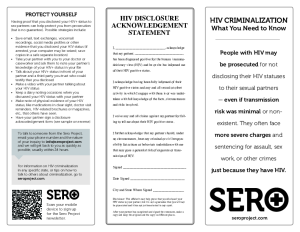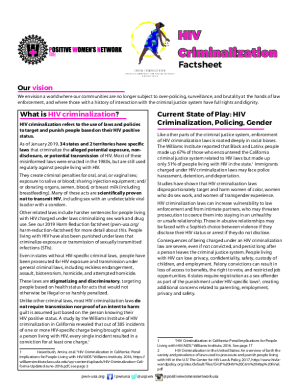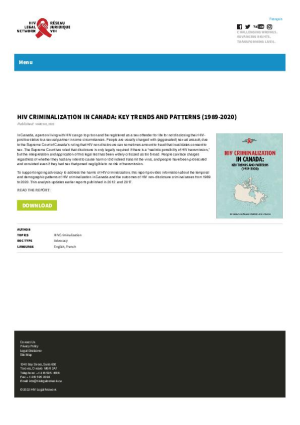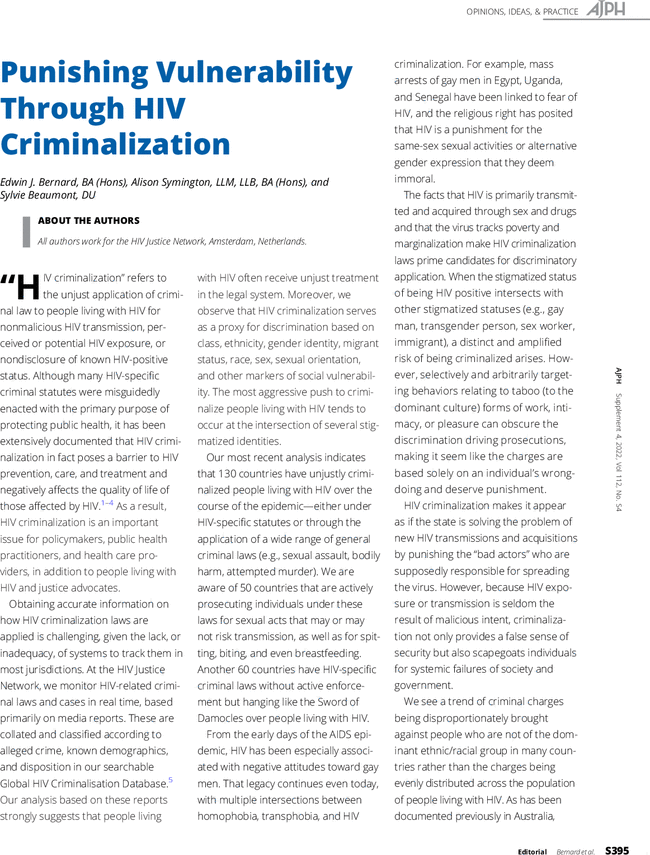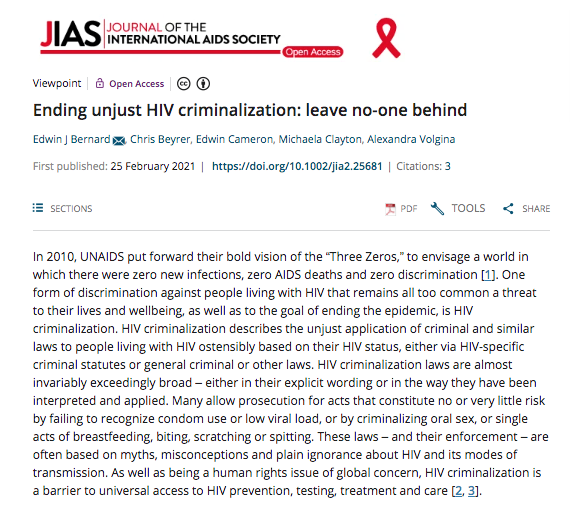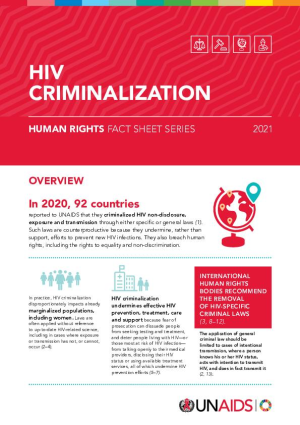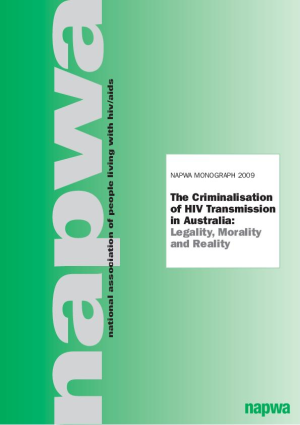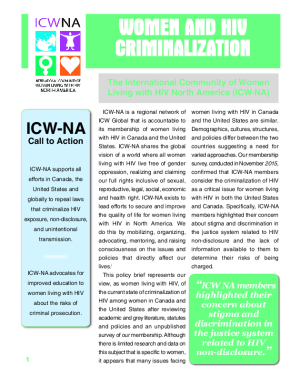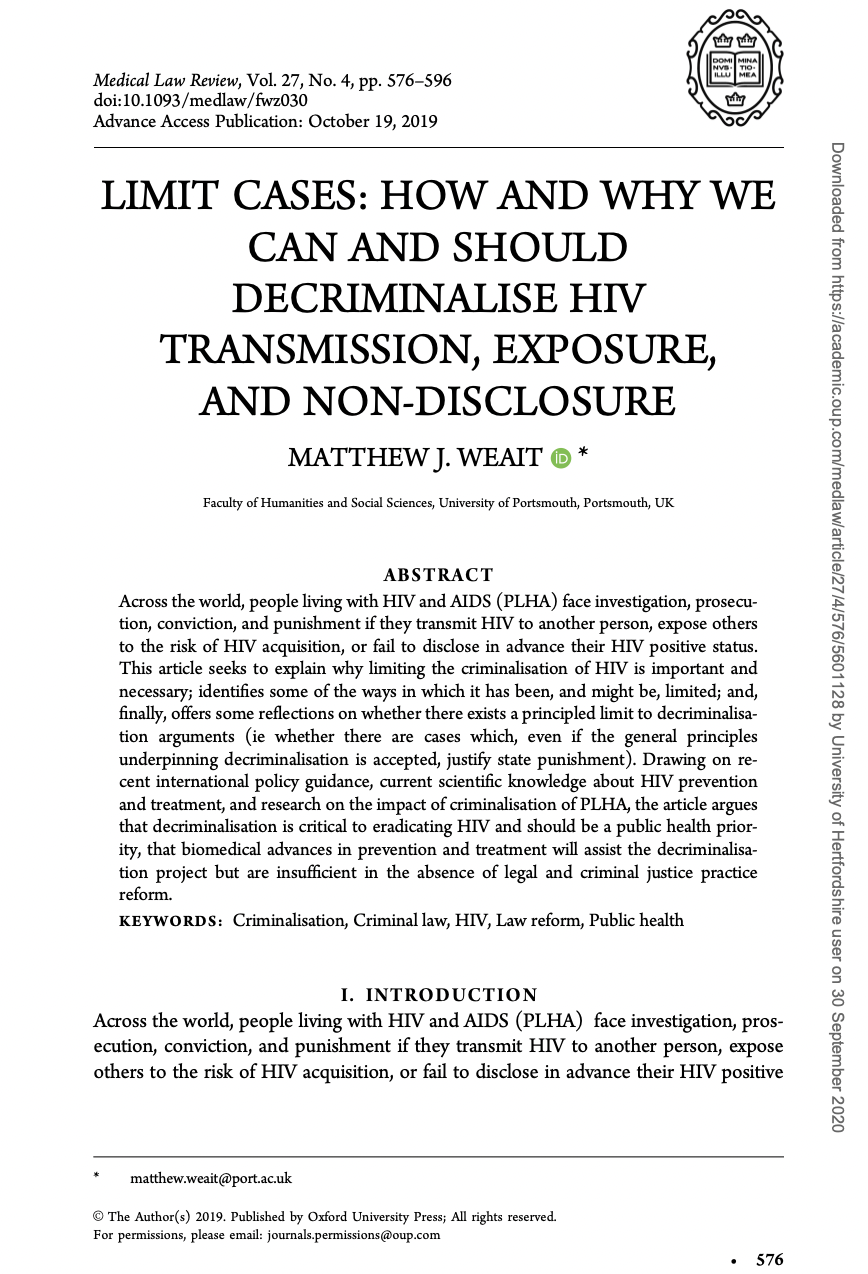Provides case studies and opinions from around the world, as well as resources and information to support legal advocacy and social mobilisation.
Introduction to HIV criminalisation
What is HIV criminalisation
The obligation to disclose HIV-positive status under Canadian criminal law
Explains when there is a legal duty to disclose HIV-positive status to sexual partners, what can happen when a person doesn’t disclose, and what to do if a person is worried about being charged.
- Alternative links
- French / Français
Why Are We Putting People In Jail For Having HIV? First: HIV Criminalization A Grassroots Guide To HIV Criminalization: Facts, Foolishness And Solutions
This guide developed by The Center for HIV Law and Policy and National Center for Lesbian Rights in 2015 outlines the basics of HIV criminalization, medical facts, how criminalization exacerbates stigma, issues with HIV laws, and how people can advocate for change. Includes useful links.
HIV criminalization: What you need to know
Provides advice on HIV disclosure laws and what to do if a person is accused, includes HIV Disclosure Acknowledgement Statement.
HIV Criminalization Factsheet
Factsheet by PWN-USA outlining key points about HIV criminalisation in the U.S.
Criminalization of HIV Non-Disclosure in Canada Video Series
Series of 23 short videos on different aspects of criminalization of HIV non-disclosure in Canada. Topics include: What is criminalization of HIV disclosure?, What should I do if I’m charged?, Why don’t people with HIV always disclose?, and How does Canada’s strict legal stance affect those living with HIV?.
HIV Criminalization in Canada: Key Trends and Patterns
Provides a snapshot of the temporal and demographic patterns of HIV criminalization in Canada from 1989 to 2020, also updating information on the outcomes of criminal cases. Finds people are often convicted in cases involving negligible or no risk of HIV transmission, and that criminal law is increasingly used against people living with HIV from marginalized populations.
Punishing Vulnerability Through HIV Criminalization (2022)
This article explores the links between HIV criminalisation and other punitive laws and policies that regulate bodily autonomy, including reproduction, sexuality and gender.
Ending unjust HIV criminalization: leave no-one behind
This article discusses the issue of HIV criminalization, highlighting that such laws are often based on myths, misconceptions, and ignorance about HIV transmission and can lead to discrimination and stigma against people living with HIV. The article emphasizes that HIV criminalization poses a significant barrier to achieving universal access to HIV prevention, testing, treatment, and care. The authors conclude by calling for the removal of HIV criminalization laws entirely to ensure justice for all individuals living with HIV and to end the discrimination and stigma associated with these laws.
HIV Criminalization – Human Rights Fact sheet Series
Series of fact sheets on human rights highlighting the critical need to scale up action on rights. Short, easy to digest and accessible document outlining the latest epidemiology, the evidence of the impact of human rights interventions, the latest targets, and international guidelines, recommendations and human rights obligations.
Other factsheets in the same series released in June 2021 include: HIV and people who use drugs, HIV and gay men and who have sex with other men, HIV and transgender and other gender-diverse people, HIV and sex work, HIV and people in prisons and other closed settings and HIV and stigma and discrimination.
The Criminalisation of HIV Transmission in Australia: Legality, Morality and Reality
Addresses the criminal prosecution of people who transmit HIV in Australia. Examines the legal, moral and ethical justification for laws criminalising HIV transmission and the impacts of criminalisation on people with HIV.
Women and HIV criminalization
This policy brief represents the view, as women living with HIV, of the current state of criminalization of HIV among women in Canada and the United States after reviewing academic and grey literature, statutes and policies and an unpublished survey of membership. ICW-NA members highlighted their concern about stigma and discrimination in the justice system related to HIV non-disclosure.
Criminalization of HIV Exposure: A Review of Empirical Studies in the United States
This review of literature identifies and describes US empirical studies on the criminalization of HIV exposure, examines findings on key questions about these laws, highlights knowledge gaps, and sets a course for future research.
Limit Cases: How and why we can and should decriminalise HIV Transmission, exposure and non-disclosure
ABSTRACT: Across the world, people living with HIV and AIDS (PLHA) face investigation, prosecution, conviction, and punishment if they transmit HIV to another person, expose others to the risk of HIV acquisition, or fail to disclose in advance their HIV positive status. This article seeks to explain why limiting the criminalisation of HIV is important and necessary; identifies some of the ways in which it has been, and might be, limited; and, finally, offers some reflections on whether there exists a principled limit to decriminalisation arguments (ie whether there are cases which, even if the general principles underpinning decriminalisation is accepted, justify state punishment). Drawing on recent international policy guidance, current scientific knowledge about HIV prevention and treatment, and research on the impact of criminalisation of PLHA, the article argues that decriminalisation is critical to eradicating HIV and should be a public health priority, that biomedical advances in prevention and treatment will assist the decriminalisation project but are insufficient in the absence of legal and criminal justice practice reform.

